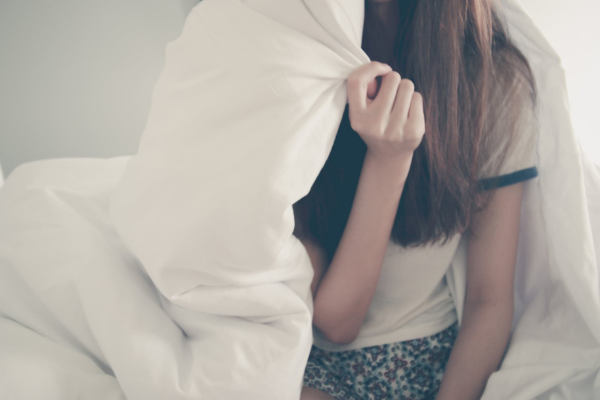Planning on buying a weighted blanket?
Weighted blankets are now on the spotlight. From popular online stores like Amazon to local supermarkets such as Target, these weighted wonders are selling fast. Various textile companies have launched new types to fit to different needs.
Here is a detailed guideline to help you in buying a weighted blanket that’s perfect for your needs.
The Right Weight

A weighted blanket, as the name implies, is heavy. It puts pressure on the body to improve sleep and increase relaxation. Plus, weighted blankets can also help lower stress and anxiety. Its healing effect comes through its balance weight distribution over the body while sleeping.
The ideal weight of the blanket should be 10% of a person’s body weight. For example, a 15-pound weighted blanket is the best option for a 150-pound person.
Weighted blankets, however, have pre-calculated weights. Therefore, it is best to choose whatever is closest to your requirement.
Safety Reminders
• The minimum body weight of a person to use a weighted blanket is at least 20 pounds.
• The recommended minimum age for weighted blanket use is two years old.
• Close supervision is important for minor users which falls under the 2- to 15-year-old age bracket.
• Persons with medical conditions like claustrophobia may opt to use lighter blankets. Weighted blankets produce a hug-like effect, which may trigger a negative response to those with such condition.
Blanket Size
Most weighted blankets are made to cater to the needs of an adult individual. The recommended blanket size depends on each person’s height.
The standard sizes include:
• King size– 80 inches by 86 inches
• Queen size– 60 inches by 80 inches
• Under six years old– 44 inches by 24 inches
• Over six years old– 44 to 50 inches by 36 to 38 inches
Weighted blankets for couples and taller-than-average persons are also available in the market. The weighted blanket for couples is horizontally longer than a single adult blanket. The weighted blanket for taller-than-average persons, meanwhile, is vertically longer.
The sizes for these specifically designed blankets vary. Therefore, it is best to ensure that the size of the blanket you choose fits your needs.
Here are additional points to consider when choosing your blanket size:
• Why do you need a weighted blanket? Can it help you relax due to a medical condition?
• What are the parts of your body that needs to be covered?
• Where are you going to use the weighted blanket? Is it for home use, during travel or for therapy sessions?
Thickness
Weighted comforters are obviously thicker than a standard sleeping blanket. It is because they are two pieces of thick fabric sewn together. They are also added with fillers inside to make them heavier. The usual thickness of a weighted comforter is about a ½ inch to 1-inch maximum.
Filler
Fillers provide additional weight to blankets. Foam beads, glass beads or plastic are the usual fillers for weighted blankets. Take note that low-quality fillers, such as foam beads, can get easily flattened. The best option is a glass-beaded blanket.
Glass beads are heavy-duty fillers. They can provide the best comfort for a more restful sleep.
Fabric Cover
Choosing the perfect fabric material is essential for the added comfort while you sleep. When selecting a blanket, you should consider your sleeping preference and the texture of the fabric. Your preference is an essential factor. Some people can quickly feel hot at night while others may feel cold, even during the summer.
Some fabric types give specific sensory stimulation that may either provide additional comfort or trigger an anxiety attack. Therefore, have a feel of the fabric before making the purchase.
Here are a few of the most preferred fabric types that you might want to check:
Cotton – It is the most common type of fabric for any clothing. Weighted blankets can be made of either conventional or organic cotton. The cotton types are best-loved because they are hypoallergenic and are easy to wash.
Satin-cotton – These types of blankets are popular among those with physical problems. The smooth feel helps them relax and sleep faster.
Flannel – The flannel blanket is best for winter months and for those who are always cold. It is easy to wash and dry.
Quilt – The quilted fabric is best suited for summer days and for those who feel too hot under blankets. However, it is not recommended for tactile and sensitive people as the texture tends to be quite rough.
Price
The price of weighted blankets is based on size, weight, and style. The bigger the weighted blanket is, the higher the price becomes.
A 30 x 48 inches blanket is $60 on an average. On the other hand, a 58 x 80 inches blanket is about $170.
Heavier blankets are more expensive than light-weighted ones. A 25-pound blanket has a whopping price tag of approximately $300 while a 3-pound weighted blanket is only around $65.
The price of custom-made weighted blankets depends on the request of the buyer.
Depending on the brand, high-end weighted blankets go as high as $250 or even more. Still, good-quality weighted blankets are more affordable at a lower price of $100 and below. Double-check the materials to ensure that you are getting an item that is durable and comfortable at the same time.
Good quality options are available on the market. Like any other shopping item, it is best to know the facts rather than just jumping to the fad when buying a weighted blanket. Seek recommendations from relatives or colleagues or check customer reviews for a more thorough insight.